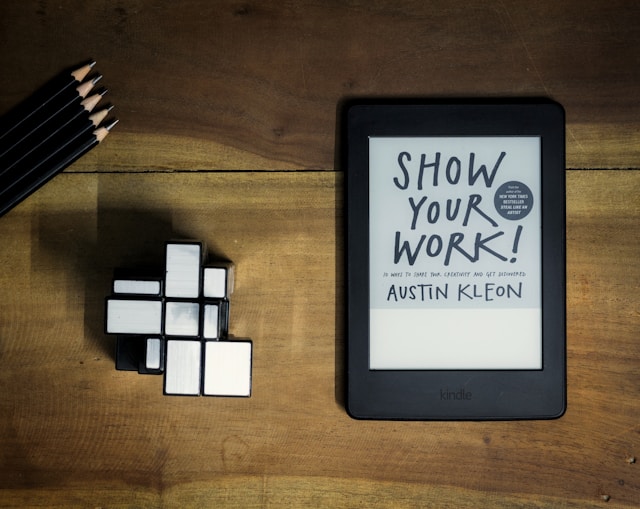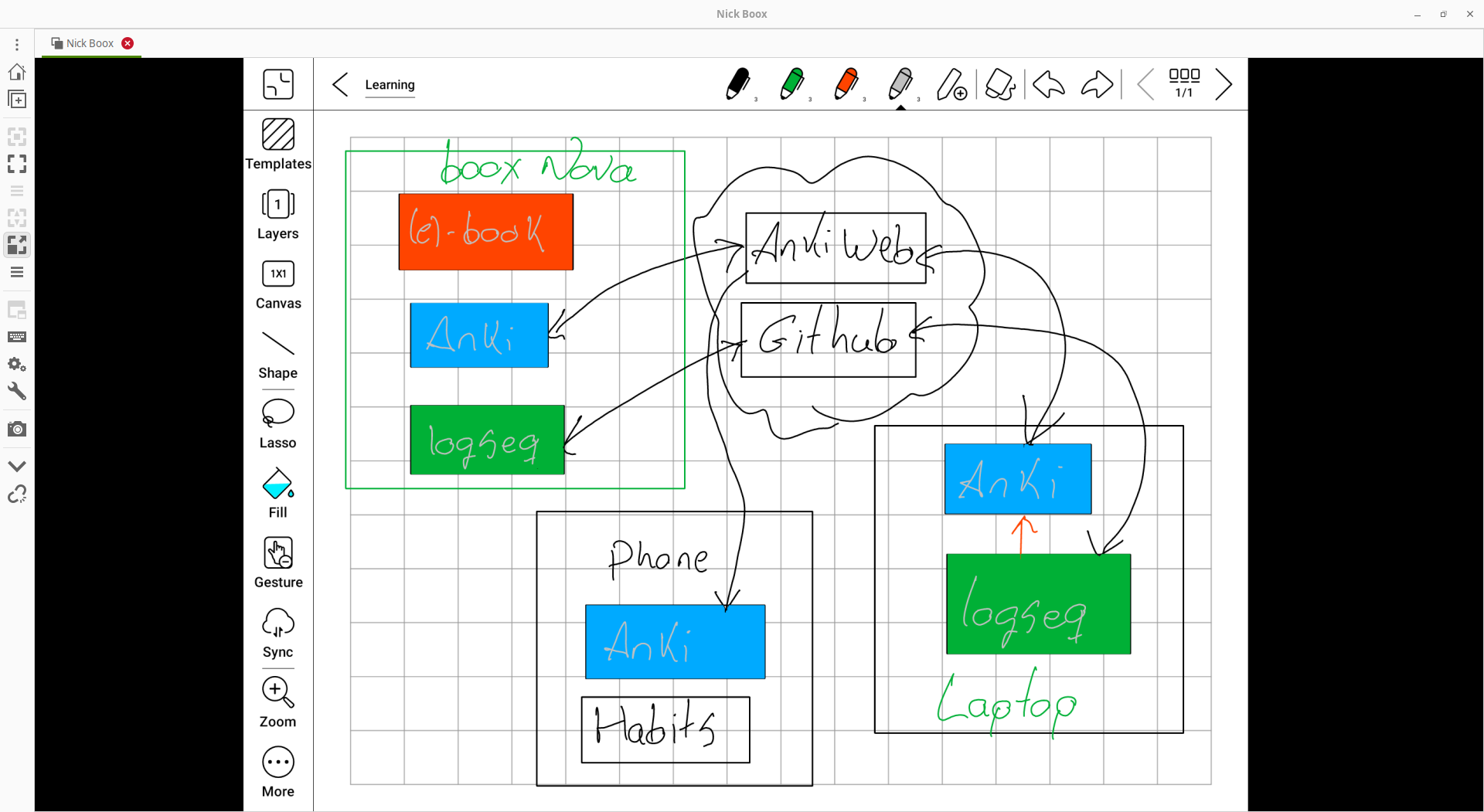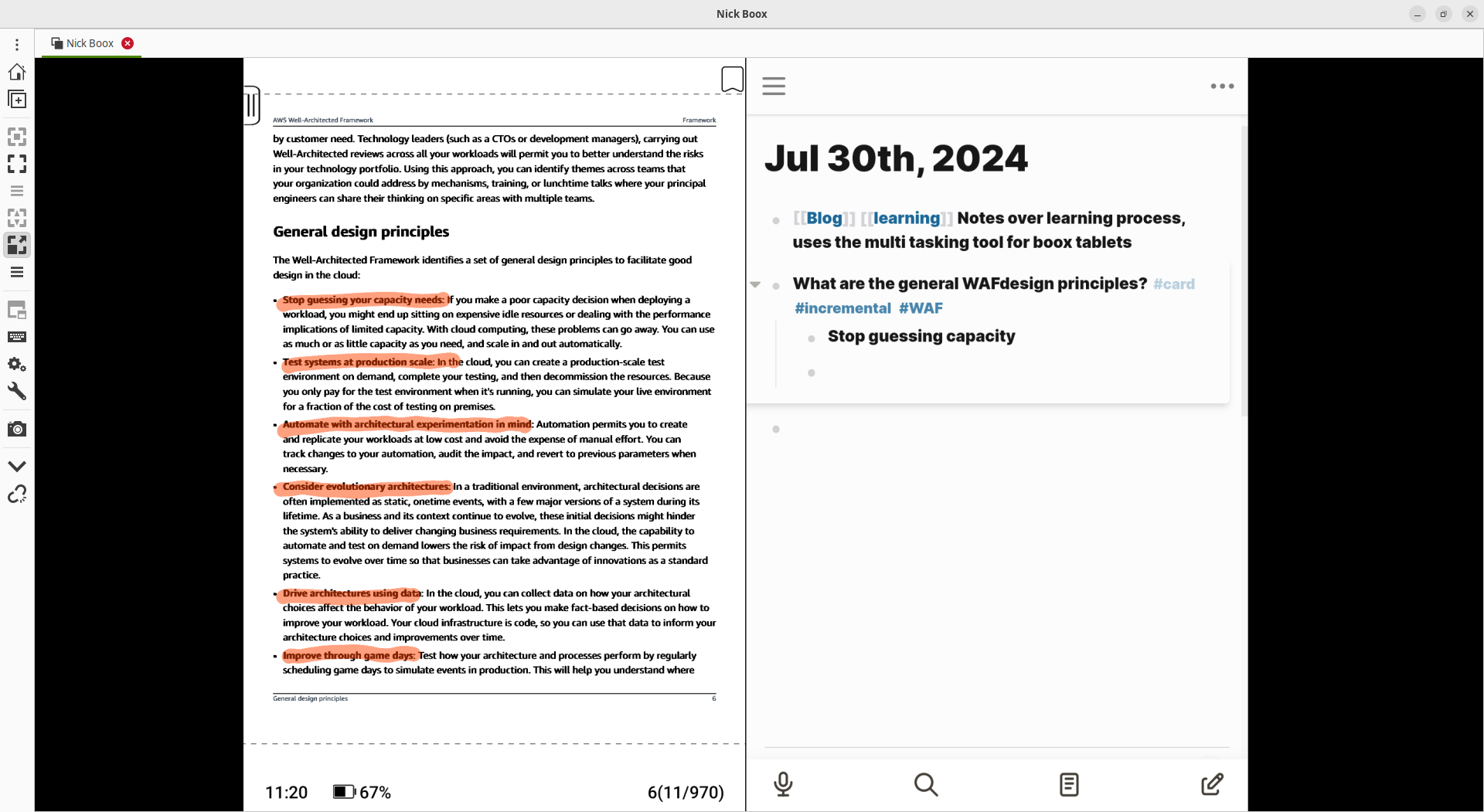10.01 Local Learning Mechanisms
LLMs in your own private set of gadgets

Data, Information, Knowledge and Wisdom are constructs that keeps your mind working, they are connected through a process that I like to think as Learning, how do I balance the current hyperconnected-attention-extraction world with my own local learming mechanisms? This is my personal learning toolset-method. Photo by Rishikesh Sreehari.
Learning to Learn
Everybody has its own learning model, there are several courses on how to learn, personally I found that my (repeteable) process is something like:
- Narrow the topic to be learn
- Find max 3 references (Blog post, Short video, e-book)
- Read and watch the intro videos
- Read the book:
- Read
- Take notes
- Create flash cards
- Create a habit:
- Use flash cards in my mobile
- Track advaces
- Produce something based on learning:
- Write about what I learned
- Code, Test, Deploy, etc.
Narrow the topic
The SMART (Specific, Measurable, Achievable, Relevant, Temporal) methodology to set goals applies here. Goals like “I want to learn Portuguese” are too vague for me to be achievable, too specific like “I want to get TOEFL score of 95%” are too specific and (worst) focuses on obtaining the validation instead of learning something useful.
I prefer to set short learning goals that can be compounded to get a larger goal, determine which atomic parts of your journey are more appealing to you to start (is difficult to start learning math with differencial equations…), this will allow you to create grit (the strength of character that your will need to success, check this calculator) and gain some early victories.
This is where the wishful thinking gets transformed into data by learning the broad space of things to learn and choosing a niche to go deep.
Find References
Content curation is a difficult task and is usually a crowd-sourced effort, refining the petabytes of data that are available into a useful set of resources that can be mentally-indexed is a task that must be delimited, everybody knows somebody that is writing a book but that never has finished the research stage.
A blog post is my first anchor, some people are really good synthetizing information and you can understand the scope of what you want to learn with a short (1000 words?) blog post that serves as initial reference.
A video usually helps to give confidence about the effort and results that can be achieved once your learn what you want, but, this is another kind of trap, you can get the (wrong) idea that only by learning something you will be able to reproduce the results that you are watching, take for example, the thousands of videos about how to get rich by learning how to sell on amazon.
Books are my main source for learning info, passive reading is not useful here, once you have found a good book about what you want to learn, you have to navigate through it creating something that generates an imprint in your brain, probably the best option is experience but there are other ways.
For example, this book is amazing by itself, but if you don’t get the experience of applying what you see, your learning will be truncated and only theoretical.
The selection of references gives you some criteria and transforms data into information. Next step is to get that information to build some knowledge.
Imprint generation
Besides direct experience you can generate long-term memories about what you want to learn by usiing the Leitner System better known as spaced repetition, in my experience the better way to do it is by creating your own cards from reading and then studying it as a traceable habit.

I read my books using an e-ink tablet (my eyes are very delicate and this kind of screen is better suitable for me to read). With DroidVNC you can cast notes and diagrams directly to my laptop/computer screen.
I also keep a journal using Logseq, the workflow and availability suits my needs, in this case, using the android app along with the reading in the laptop or tablet let me complete my reading with simultaneous notes and flash card creation. This way I can work locally at my desk or in a light way in any coffee shop/coworking space.

Creating your own content to study is not enough, if you can’t directly apply what you are learning, keeping it as a long-term memory is also good. To avoid the endless scroll trap I try to use my phone as a memorization tool, Ankidroid and Loop Habit Tracker are good open source mobile apps to keep a spaced repetition algorithm working. The important take here is that memorization is just a component of the learning process, a set of good practices about flash-carding your learn path was written in 2020 by Pawel Cislo.
Do something to be wiser
The knowledge that you built by producing some atomic content by itself is not useful until you prove it as a real-world experience, to validate what you think you know is necessary to create something, I insist in using the create verb instead of the assess one because you can learn to pass an exam without really have learned anything.
If you cannot apply, write about your learning, won’t be as good but definitely will be a good start. Maybe your blog post can spark a learning journey for other person. As William Saroyan said “Good people are good because they’ve come to wisdom through failure.”
